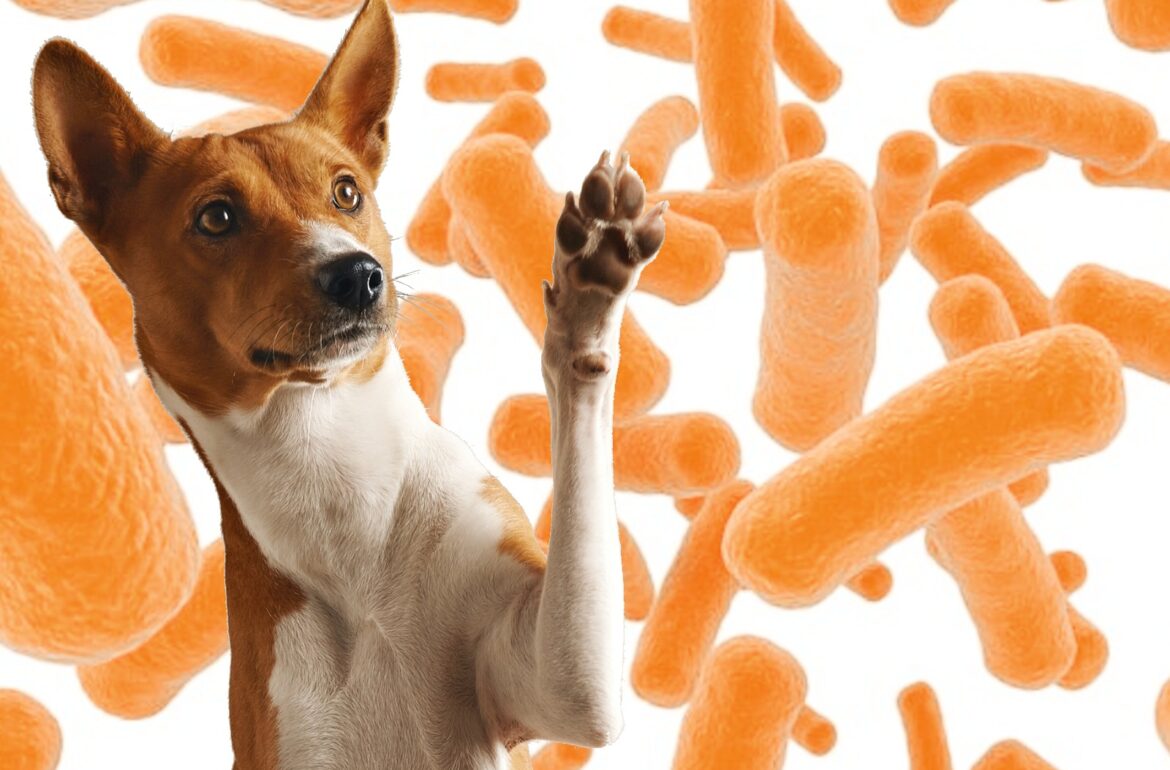Prebiotics and Probiotics: What is the Difference and How Can It Benefit My Dog and Cat?

Essentially, probiotics can be described as tiny living microorganisms that are made up of yeast and living strains of bacteria. By including probiotics to your dog and cat’s diet, it will contribute towards maintaining a healthy and strong colony of “good” bacteria in their digestive system. Prebiotics on the other hand is soluble plant fibre that serves as food for probiotics to feed and continuously thrive on inside your dog and cat’s gastrointestinal system.
So, the easiest way is to think of prebiotics as the “soil” and probiotics as the “plant” that grows from the soil. This ecosystem of bacteria should exist in perfect harmony but medication, stress, illness or even a change in diet can throw off the balance of bacteria in your pet. Often, this can lead to issues such as gas (when too many farts stop becoming cute), loose stools, inflamed skin, yeasty ears or worse.
Importance of Prebiotics and Probiotics for Dogs and Cats
Our pets are made up of more bacterial cells than animal cells. Bacteria is present on the skin, in the mouth, ears, nose, but mostly in the gut. Almost a whopping 80% of our pet’s physiological and pathological states is influenced by what happens in their gastrointestinal system (GI) which starts from their mouth, teeth, and salivary glands, down to the oesophagus, stomach, intestine, pancreas, liver and gall bladder. Regulations in energy needs, metabolism, immunological activity and neuro-behavioural development1 can be affected by the digestive health of our dogs and cats.
What this means is that we need to strive towards providing enough “good” bacteria through the supplementation of prebiotics and probiotics in our pet’s diet to help prevent GI-related illnesses. These “good” bacteria are able to produce short-chain fatty acids (SCFAs), the essential energy source for colonocytes2 which are cells that help to maintain the mucosal barrier that lines and protects the gut, and prevents “leaky” gut syndrome.
Having tight cell walls means that while essential nutrients are still able to be absorbed by the body, proteins that have not been digested, pathogens or allergens from the intestines cannot leak out into the blood stream and affect your pet’s health. SCFAs also help stimulate the production of anti-inflammatory compounds in the body. Keeping inflammation under control is important because if left unchecked, dogs and cats can suffer from chronic diseases such as Irritable Bowel Disease (IBD), skin inflammation, early onset of arthritis, enteritis, steatitis, immune-related diseases and cancer.
Probiotics for Dogs and Cats
Common probiotic bacteria strains for dogs and cats include:
- Lactobacillus
- Bifidobacterium
- Enterococcus
These bacteria make use of the fermentation process to convert sugars into acetic and lactic acids which lower the intestinal tract pH and slow down/inhibit the proliferation of pathogenic bacteria3. Always look for probiotics that contain the highest colony-forming units (CFU) per gram, either in the millions or billions.
Benefits of Probiotics for Dogs and Cats:
- Control diarrhea and loose stool caused by bacterial overgrowth or parasitic infection
- Reduce of yeast-associated disorders
- Regulate weight
- Address frequent ear infections
- Improve skin and coat issues such as excessive shedding, flaky/dry skin
- Reduce paw licking
- Address frequent vomiting
- Correct imbalances in the GI flora caused by antibiotics
- Inhibit the growth and activity of harmful bacteria, such as E. coli, Salmonella, and Clostridium perfringens
- Prevent urinary tract infections
- Improve bad breath
Probiotics are suitable for pets of all ages. It is always best to give your pet a probiotic that contains a variety of bacterial strains. Though natural sources of probiotics such as yogurt, kimchi and kefir are available, the strains found inside them may not be able to survive the acidic stomach conditions of our buddies4, hence it is always better to supplement your pet’s diet with a probiotic that has been formulated for canines/felines.
Prebiotics for Dogs and Cats
Just like how bees can’t do without flowers, prebiotics are the main food source for the probiotic. When more prebiotic is provided, it initiates the fermentation process in the large intestines to create stronger and more populous probiotics, resulting in a healthier pet. Unlike probiotics which are live and more fragile, prebiotics are hardier and can withstand cold, heat and acidic stomach conditions5.
Common prebiotic strains for dogs and cats include:
- Fructo-oligosaccharides (FOS)
- Galactooligosaccharides (GOS)
- Mannan oligosaccharides (MOS)
- Inulin
Benefits of Prebiotics for Dogs and Cats:
- Quicken food fermentation process in digestive tract to aid digestion
- Improve mineral absorption
- Reduce and prevent spikes in blood sugar
- Modulate immune system
- Promote metabolic health (insulin resistance, healthy blood lipid levels)6
- Improve bowel movements
- Reduce hunger pangs
There are plenty of natural food sources of prebiotics. They include mushrooms such as turkey tail, chaga, maitake and reshi. Other foods rich in prebiotics includes chicory root, beet pulp burdock root and dandelion greens. The Grateful Pet meals includes a specially cultivated seaweed that has been cultured with prebiotics.
References
- https://www.ncbi.nlm.nih.gov/pmc/articles/PMC6794400/
- https://www.dogsnaturallymagazine.com/leaky-gut-syndrome-in-dogs/
- Kelly M. The role of probiotics in GI tract health. Nestle Purina PetCare Company. purinaproplanvets.com/media/1181/role_of_probiotics.pdf 2006
- https://moderndogmagazine.com/articles/probiotics/20313
- https://vetericyn.com/blog/prebiotics-for-dogs-what-are-they-and-what-do-they-do/#:~:text=Fermenting%20food%20faster%20in%20the,from%20the%20food%20they%20eat
- https://www.gutmicrobiotaforhealth.com/the-different-ways-that-prebiotics-and-fiber-affect-the-gut-microbiota/


